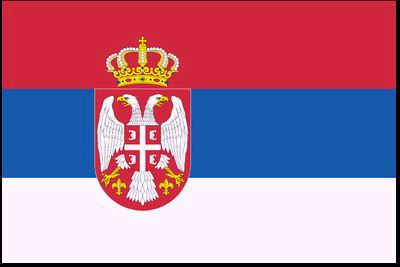BELGRADE -- Serbia's War Crimes Prosecutor Vladimir Vukčević says he expect the UN Security Council to "adhere to the principle of justice".
Vukčević spoke after Serbia officially sent its proposal regarding a future Kosovo organ trafficking investigation, urging the council to organize the probe under the auspices of the UN.
Council of Europe Rapporteur Dick Marty's report, published in late December, named leaders of the ethnic Albanian KLA as perpetrators of atrocities committed in 1999 and 2000, that included kidnappings of Serb and other civilians and harvesting of their vital organs for sale in the black market.
Vučković told Belgrade Večernje Novosti newspaper today that he expected the Security Council "to be outside of the influence of politics".
"Everything else are details that are easy to agree on, once there is a decision on which body will carry out the investigation," the prosecutor was quoted as saying.
"Taking into account that there is a good basis in UNMIK's report - which had been covered up for a long time - I expect that the investigation will be carried out efficiently and that it will bring to justice the persons for whom there are serious indications and evidence of involvement in human organ trafficking, which was only one of the activities conducted by criminal groups in Kosovo," he stressed.
Vukčević said that, before the Security Council decides whether to entrust one of its bodies with the investigation, Brussels, as well as some of the world powers such as Germany, France, Great Britain and the U.S., voiced opinions that EULEX - EU's mission in Kosovo - is capable of carrying out the investigation on its own.
"The investigation has not started yet because there is no agreement among them, and they do not support Russia's, China's and South Africa's initiative to overcome EULEX's problems in the field. By problems, I mean witness protection, leaking of information, and pressures caused by political influence," Vukčević pointed out.
He said that EULEX works in an environment which is unfavorable for such a delicate case.
"I emphasize that the crucial job is the adequate witness protection. EULEX is carrying out, as they say, a preliminary investigation, and that is as far as I have heard. The evidence will not get to the office on their own, someone has to try and collect them. In any case, we are ready to cooperate with our colleagues from EULEX,” Vukčević pointed out.
The Serbian prosecutor also said he had high expectations from UN Secretary-General Ban Ki-moon's upcoming visit to Russia. Moscow last week said it supported Serbia's UN initiative.
"I believe this topic will be discussed there as well and that Russian's great influence and good will to have this investigated will bring us closer to a solution," Vukčević was quoted.
According to him, the organ trafficking case is a huge challenge, but the international community has the strength to respond to it.
"The are two scenarios. One would be to give the mandate to an independent investigator who would be based outside of Kosovo and Metohija. The other is to give EULEX the mandate, and that is something that the United States and Brussels are insisting on," the war crimes prosecutor explained.
But Vukčević noted that "beside the financial problems", he "could not see the reason why an international investigation was persistently being avoided".
"An international investigation is guarantee that truth will be determined, and I hope that is everyone's goal. If important international subjects get involved in daily politics, this phenomenon, at the heart of Europe, will be covered up," Vukčević said of the organ trafficking case.








